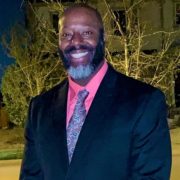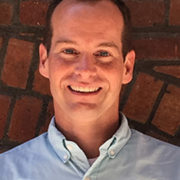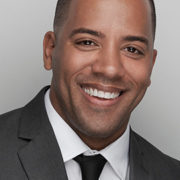Dolphy Jordan is living proof that all children have the capacity to change and grow.
At 16, Dolphy pleaded guilty to first-degree murder. He was released from prison in April 2010, after serving nearly 22 years. Since then, he has worked hard to build a productive life in the Seattle area.
During the more than 21 years he served in prison, Dolphy earned his GED. After he was released, Dolphy earned an associate’s degree, graduating with honors. He has since been working on an undergraduate degree in social work while working fulltime for Therapeutic Health Services, a nonprofit organization that provides a wide array of services. Dolphy helps provide services to people who have been diverted to Drug Court, rather than to jail for low-level drug offenses. Dolphy connects Drug Court clients — many of them homeless people — to community resources, such as health and housing services, and assists them with employment and education. He also makes sure they have ID, health coverage, clothes — the essentials for building a successful life.
Dolphy’s early life was challenging. He was born in San Diego, and grew up in Seattle in an impoverished and abusive home environment. His father was addicted to drugs, and Dolphy’s mother relied on welfare to raise him and his sister.
By the time he was in the 9th grade, Dolphy had attended 15 or 16 different schools. He acted out, and was kicked out of some schools for truancy and bad behavior. At one point, his mom also kicked him out of the house. For a while, Dolphy bounced between the streets and various foster homes. He also started using drugs.
In 1989, Dolphy and two friends ran away to California together. One of the other teenagers hated his mother, who worked as a prostitute. One of the woman’s clients had abused Dolphy’s teenage friend, who had talked of wanting to kill his mom. Before they left Washington state, the three teenagers participated in her death, then went on the run. Dolphy was 16.
Dolphy quickly surrendered to authorities in California and took responsibility for his role in the crime. Authorities charged him as an adult, he pleaded guilty to killing the woman. A judge sentenced Dolphy to 27 years in prison. It wasn’t until about six years later — after he began to mature — that Dolphy understood how others had been harmed by his actions. One he realized that, Dolphy started working on becoming a better person.
Dolphy now advocates for changes in the laws regarding the ways we hold young people accountable. He also works with young people to encourage them to avoid the bad choices he made as a youngster.
Dolphy often shares his story with children, especially those dealing with truancy. He often goes to adult prisons in Washington state to talk about his journey. He said he understands he will have to deal with feelings of remorse his entire life.
“I’m not the same person I was at 16,” Dolphy said. “I will not be defined by my worst decision. I will be defined by the person I’ve become.”






